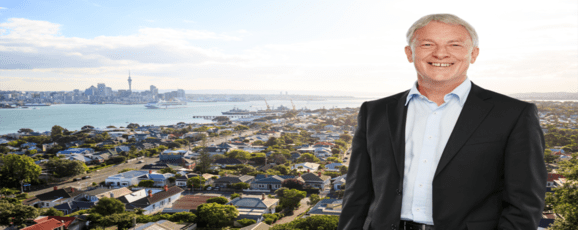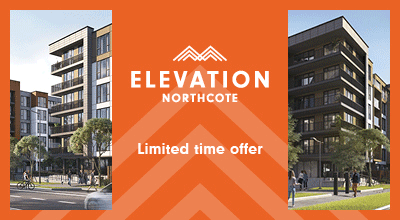Q&A With Auckland Mayoral Candidate Phil Goff
Continuing our series of Q&A’s with Auckland Mayoral candidates about housing, next up we have current Mount Roskill Labour MP, Phil Goff

1. What do you believe the role of Auckland Council is in relation to dealing with Auckland housing?
Auckland’s Mayor and Council have a direct and an advocacy role in relation to dealing with Auckland’s housing crisis.
Its direct role relates firstly to ensuring that there is an adequate supply of land for building houses and apartments to meet the needs of a population in Auckland which is growing by more than 40,000 people a year.
Land represents around 60% of the cost of a new Auckland home. If there are supply constraints that pushes up the price of housing. Through the proposed Auckland Unitary Plan, provision must be made for Auckland to grow up and out. In doing this Auckland City must protect areas of sensitivity such as heritage and areas of environmental importance as well as areas such as Class 1 soil in Pukekohe.
The Plan should allow for intensification focussed on the city centre and town centres, transport hubs and arterial routes, so we can address our housing and transportation challenges together. It should ensure good urban design, good infrastructure and ample public space.
Its second direct role should be to coordinate central government, NGO, private sector and corporate responses to homelessness.
The indirect but just as vital role for the Mayor is to be a strong advocate with central government for it to use its statutory power and financial resources to meet the supply and demand factors that are contributing to Auckland’s housing crisis. On the supply side it needs to address the building materials monopoly that holds up prices, training for an adequate supply of skills in the industry and New Zealand’s lack of economies of scale in providing homes more efficiently and cheaply.
It should, as past governments have done, kick-start the supply of affordable homes by partnering with the private sector to get homes built. Affordable homes today make up only 5% of new builds compared to 35% a few decades ago. That helps explain why first home buyers today can’t become home owners. On the demand side, Government should heed Reserve bank advice on moderating record immigration until infrastructure can catch up with the demands of a rapidly growing population. It should require, as Australia does, non-resident investors to build new homes rather than bid up the price of existing homes. It should implement interim measures to curb rampant speculation such as an extended bright line test for taxation of capital gains by speculators, a much higher equity to loan ratio for investors and stop negative gearing by investors which gives them huge advantages over first home buyers.
2. Given your position on Auckland Council’s role, what actions would you take to influence the Auckland housing situation?
We first need to make changes to ensure there is a plentiful supply of green and brown fields land to stop land shortages pushing up prices. We also need to present to government a strong public case for bold changes in its policy to address the housing crisis rather than simply tinkering around the edges.
3. How do you think Auckland’s Proposed Unitary Plan will affect future housing?
For just a few more weeks is the answer to this is speculative. [Update: The IHP released its Unitary Plan recommendations on 27th July] I believe the IHP will make constructive and well-considered recommendations for changes which will help ease the housing crisis. After years of consultation and with a well-respected Chair in Judge David Kirkpatrick, I believe the recommendations made by the Panel in implementing the Unitary Plan will be well-founded ones which I hope the outgoing Council will adopt.
4. More generally speaking, what are 3 initiatives you hope to undertake as Mayor of Auckland?
Interpreting the question as going beyond just housing, my three key policy pushes will be
(i) getting agreement with Central Government for low or no interest infrastructure bonds to meet the estimated $20 billion in new infrastructure which needs to be made in Auckland over the next 10 years
(ii) bringing forward infrastructure investment to create a congestion free transport network including through the CRL, new bus ways, light rail and cycle and walkways
(iii) creating a new culture in the Council bureaucracy based on doing more with less, achieving efficiencies, ending waste and duplication and making Council a client, resident and ratepayer, focussed organisation with a can-do attitude.
5. What is your vision for the future of Auckland?
I want Auckland to be a great city for people to live, work and do business in and a city that attracts talent and enterprise. I want it to protect and sustain its natural environment and seek to create a built environment which matches the quality of our natural environment.
I want Auckland to be an inclusive city for all of our diverse cultures and people of different income levels. I want every child who grows up here to be able to realise his or her full potential.















Dustin Lindale July 27, 2016 Blog